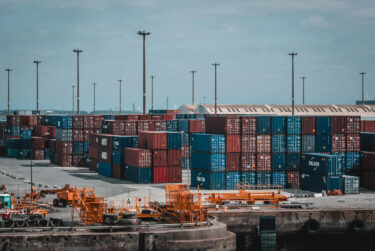Home – Regulations – Modern Slavery and Forced Labour: Actions for Businesses
Table of Contents
- What is modern slavery?
- Navigating the complexities
- Examples of modern slavery
- Impacts on businesses
- Modern slavery and forced labour laws
- What businesses need to do
- How Anthesis can help
- Contact Us
Share this guide
What is modern slavery?
Modern slavery is defined by the United Nations as “situations of exploitation that a person cannot refuse or leave because of threats, violence, coercion, deception, and/or abuse of power”. It can take many forms, including human trafficking, forced labour, debt bondage/bonded labour, descent-based slavery, child slavery, forced or early marriage, and domestic servitude.
Modern slavery and forced labour are global issues, present in every country and affecting every sector. According to Walk Free Foundation’s Global Slavery Index, which looks at the prevalence of modern slavery in 160 countries, an estimated 50 million people were living in modern slavery on any given day in 2021. Out of those, 28 million were in conditions of forced labour, the most common form of modern slavery. Contributing factors to modern slavery today include poverty, conflict, and international migration. Women, children, migrant workers, and minority groups are particularly vulnerable and disproportionately affected.
Victims often suffer from physical and psychological issues as a result of their experience, sometimes with life-long consequences. This can include conditions such as post-traumatic stress disorder, depression, or chronic physical pain from injuries. In the worst cases, modern slavery can result in death, for instance where workers cannot access medical help due to a lack of social security or restricted movement.
In 2015, nearly 200 UN countries and territories recognised the scale of the issue at COP 21 and adopted “eradicating modern slavery by 2030” as UN Sustainable Development Goal 8.7. Despite this, the number of people affected by modern slavery continues to rise, with 10 million more people affected in 2021 than in 2016.
Navigating the complexities of modern slavery due diligence
Modern slavery is a violation of human rights and is a crime in several countries around the world. Despite it being widespread, it can be difficult to identify. This is because coercion may be subtle, and victims may not realise their working conditions are illegal, may fear reprisal if they speak up, or may be purposefully isolated. Opaque supply chains and sourcing pressures make cases particularly difficult to detect at the multinational business level. The International Labour Organisation (ILO) lists 11 indicators which can help identify victims and instances of forced labour, including abuse of vulnerability, retention of identity documents, and the use of threats.
Businesses play an important role in preventing and addressing modern slavery by carrying out human rights due diligence in their operations and value chain, as outlined by the UN Guiding Principles on Business and Human Rights (UNGPs). Human rights due diligence is a proactive and continuous process of identifying, preventing, mitigating, and accounting for negative human rights impacts connected to a company’s operations or value chain. The process helps companies prevent and address modern slavery by putting focus on identifying risk to people instead of risk to business, as well as looking beyond direct relationships. It also supports victims of modern slavery by requiring companies to carry out meaningful rightsholder engagement and ensure access to effective remedies.
Examples of modern slavery and forced labour
Recent examples of modern slavery cases linked to business activity, documented in press reporting and investigations by non-governmental organisations, include:
- The illegal recruitment system and exploitation of migrant workers in the Italian agricultural sector. The abuses include payments far below minimum wage and illegal deductions from migrant workers’ pay.
- Migrant workers in forced labour in the Gulf region, where they are subject to practices including payment of recruitment fees, non-payment of wages, and passport retention, while working in extreme heat.
- Child and forced labour in the cocoa industry, often tied to structural poverty in cocoa-growing regions and low yields, requiring farmers to rely on family members during harvest seasons. The practice risks subjecting children, young workers and other vulnerable groups to hazardous work and exploitative conditions on cocoa farms in Ghana and Ivory Coast.
- State-sponsored forced labour in Turkmenistan cotton picking, where tens of thousands of state workers and students are forced to pick cotton in poor working conditions for no pay, under the threat of dismissal if they refuse.
- Forced and bonded labour in the UK construction industry is linked to criminal activity, with large numbers of Romanian workers recruited through labour agencies as a result of labour shortages.
Impacts of modern slavery on businesses
Stakeholder expectations on addressing modern slavery risks are growing, including from investors. Organisations that fail to address modern slavery risks may suffer reputational damage and legal consequences, which can undermine their market position, reduce investment opportunities, and negatively impact their share prices.
Modern slavery is damaging not only from a human rights, legal, and moral perspective, but from a commercial lens too. The ILO estimates that forced labour generates £235 billion a year in profits, while this figure could be tripled by bringing people trapped in forced labour into formal employment.
Modern slavery and forced labour laws
A number of countries have enacted laws focused specifically on modern slavery or forced labour, which place concrete obligations on businesses. While the specific obligations of these laws differ based on their purpose and jurisdiction, the laws generally fall into three categories:
- Modern slavery disclosure and reporting laws – requiring companies to report publicly on their effort to mitigate modern slavery in their operations and supply chain.
- Forced labour import bans – banning products made fully or in part with forced labour from being imported into some countries or regions.
- Human rights due diligence laws – laws that cover the topic of modern slavery in their scope and either require companies to carry out due diligence, report on it, or both.
Companies should ensure they understand and comply with these laws, depending on their area of operation and whether they are in scope.
See examples of some of these regulations below.
Disclosure & Reporting laws:
- UK Modern Slavery Act
- Canadian Forced and Child Labour in Supply Chain Act
- Australian Modern Slavery Act
Laws covering the topic of Modern Slavery in their scope:
While the below laws don’t call out modern slavery and forced labour specifically, the topic is covered by their scope.
- German Due Diligence in Supply Chains Act
- Corporate Sustainability Due Diligence Directive
- Corporate Sustainability Reporting Directive
See our disclosures and regulations page for more information on responsible business conduct standards and laws.
What businesses need to do
Regardless of size, sector and area of operation, businesses should carry out continuous human rights due diligence as per the UNGPs, the voluntary authoritative global framework on responsible business conduct. The UNGPs are also the basis of more detailed sector guidance, such as the sectoral OECD Guidance or the Principles for Responsible Investment Guidance on Human Rights Due Diligence for Private Markets Investors.
As governments strengthen their legislation on modern slavery and human rights due diligence more broadly, it is important to consider how businesses build transparency, knowledge and capacity in line with these laws and stakeholder expectations. The most critical actions businesses can take to ensure compliance are:
- Developing a strategy to tackle modern slavery. Ensure there is a plan and commitment at the highest level to take responsibility for modern slavery in your operations and value chain, including an understanding of the laws your organisation needs to comply with.
- Value chain mapping. Understand the structure of your value chain and flow of materials along the full value chain, including any recycled input. Supply chains can be complex and dynamic, so mapping should be continuously improved and built upon. This is also important in light of new import controls and government sanction lists.
- Continuous human rights due diligence. Ensure there is a human rights due diligence programme in place to identify, prevent, mitigate, and account for actual and potential human rights impacts, including modern slavery impacts.
- Identification of salient modern slavery risks. Find gaps and develop new policies and action plans in relation to modern slavery mitigation, focusing on the most salient risks first.
Capacity building within the organisation. Establish training and development on ethical trade, human rights, gender equality, modern slavery, as well as creating grievance mechanisms and worker representation models for global supply chains.
Business examples
Below are some of the key examples of how we have supported our clients on this topic:
A British multinational active in the FMCG sector asked us to conduct a gap analysis of its existing action plan on forced labour, and issue recommendations to ensure its initiatives align with internationally recognised best practices among its peers and requirements of the UK and other Modern Slavery Regulations. We benchmarked our client’s peers’ initiatives on forced labour and leveraged findings from this exercise to identify gaps in their current agenda to identify, mitigate and remediate cases of forced labour. We identified several areas for improvement in which our client could upscale its activities or disclosures to retain its position as a sector leader in addressing forced labour. For each recommendation, we outlined the strategic rationale and expected resource commitment for the client teams. Our analysis allowed our client to make informed decisions regarding its future forced labour initiatives and resource allocation. Our recommendations ranged from basic fixes to ambitious approaches, allowing the client to prioritise a selection of initiatives both to address key gaps and to tackle emerging challenges through innovative methods.
A multinational hotel company requested that we carry out a labour risk assessment of its global network of hotels and assess the implementation of its labour rights management system. We created a bespoke risk-rating tool to assess the labour risk level of every hotel in scope, including the risk of forced labour. Our methodology considered risk indicators related to the location of the hotels (country and region), its characteristics (e.g., business model), workforce composition, and performance on past risk assessments. Because modern slavery can exist on a continuum and can be difficult to identify, we also incorporated the ILO indicators of forced labour into our methodology, which included factors such as retention of identity documents, abuse of vulnerability, or deception. We conducted public domain research on labour risks in the hotel industry, reviewed relevant documentation from the company, and carried out remote and on-site interviews with different stakeholder groups. Our research identified several human rights risks and forced labour indicators, including passport retention, excessive overtime and exploitative working conditions for undocumented workers. We developed specific and actionable recommendations for the client to address these findings both on the ground and on a global policy level.
A leading hardware retailer and cloud services company asked for our support to comply with the modern slavery act requirements in Canada, the UK, and Australia. We conducted a gap assessment of the client’s existing policies and processes on managing human rights and modern slavery risks within its operations and supply chains in line with the requirements of the acts and international best practice. We engaged with senior leaders to understand the business, its procurement and due diligence processes, and its exposure to risks such as forced labour and child labour. We designed concrete recommendations for the client to address gaps in its policies and processes to ultimately build a more robust human rights due diligence programme and improve future modern slavery reports. We prepared the client’s modern slavery statement, ensuring it met the requirements of all three acts and was representative of the client’s current efforts and plans to improve.
How Anthesis can help
Anthesis can support businesses with all areas of human rights and modern slavery due diligence: from the creation of strategy and direction towards human rights due diligence to human rights impact assessments, remedy and reporting. Using our in-house experts and tools, we can identify and rank where the key human rights and salient risks are located within your business or value chain, based on geography, industry and type of product or service. Our team’s diverse background and language capabilities mean we are also able to carry out on-the-ground research and engage directly with rightsholders in many countries around the world.
For more information on how to identify if your organisation needs to publish a modern slavery statement or guidance on how to mitigate modern slavery risks, contact us.
Related Content
Get in touch
We’d love to hear from you
We are the world’s leading purpose driven, digitally enabled, science-based activator. And always welcome inquiries and partnerships to drive positive change together.









